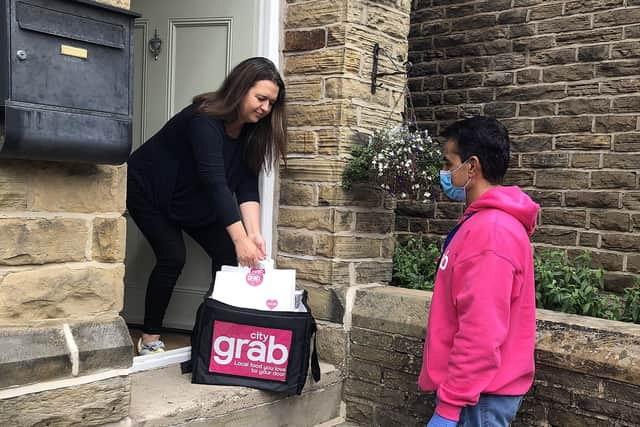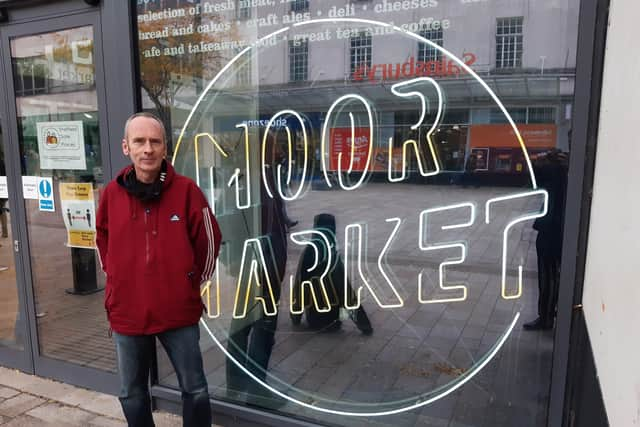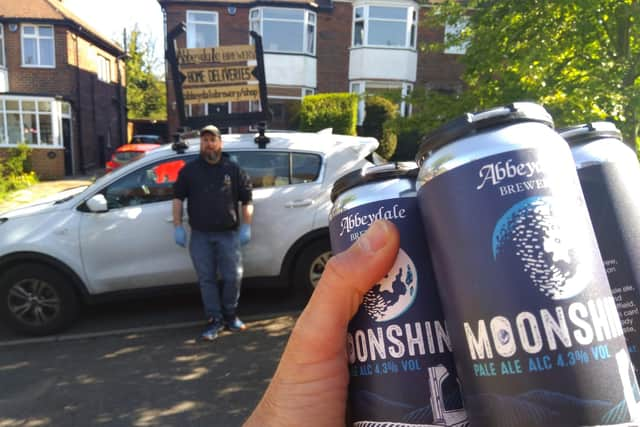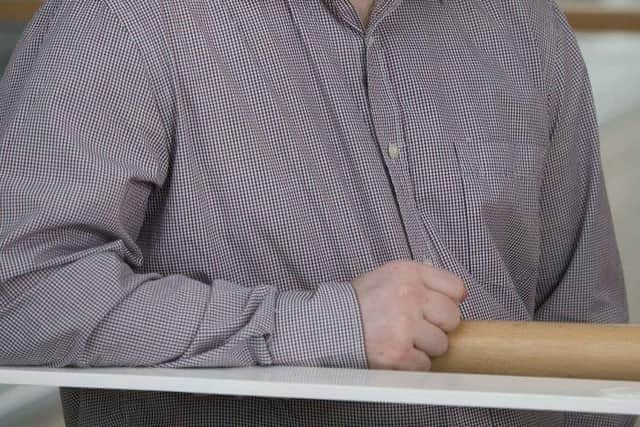Review of the year 2 - How business adapted after lockdown changed everything
and live on Freeview channel 276
The order came two months after the official launch of City Taxis’ home delivery app City Grab.
It has since played an important role in the pandemic - keeping drivers and businesses going and serving housebound residents.
Advertisement
Hide AdAdvertisement
Hide AdToday, more than 100 convenience shops, restaurants, takeaways and food producers have signed up, thousands have downloaded the app and it has sent goods worth well over £2m via taxi - passing vital cash back from customers.


Several delivery services have joined it, each one seemingly offering more sophistication.
Sheffield Made, 3miles.co.uk and Delivery Drop are all homegrown outfits that are doing the business.
Notable among them was ChefChef.Store, The Moor Market’s new online shopping service, combining goods from multiple stalls into one delivery.
Advertisement
Hide AdAdvertisement
Hide AdMarket bosses said recently that despite two lockdowns and restrictions all year, only two traders had quit for good - and four newcomers had set up. Pretty good for a pandemic.


Meanwhile the redevelopment of Park Hill flats continued in early May after a six-week break. Urban Splash is revamping 195 flats and space for business in Phase 2 of the giant project.
Greg Ball, senior development manager, said they went on sale in February and people started queueing at 2am the night before.”
But it was bad news at the start of April when 340 jobs were lost as Sheffield-based cafe chain Massarella Gelaterie went into administration - the first high profile casualty of the pandemic.
Advertisement
Hide AdAdvertisement
Hide AdThe business closed all 32 of its outlets, all in House of Fraser stores


Before the crisis erupted, the company operated more than 120 cafés and restaurants throughout the UK and employed more than 1,000 under various brands.
The business was founded in 1864 when the family emigrated from Italy to Sheffield.
Boeing was another big name forced to take action. It closed its £40m Sheffield factory temporarily and shed some 10 per cent of jobs. Recently the boss has warned another round of cuts will come.
Advertisement
Hide AdAdvertisement
Hide AdAs lockdown dragged, on Sheffield bar and brewery Triple Point Brewing on Shoreham Street switched to ‘click and collect’ orders to keep the business going, sending products across the country by courier.


Abbeydale Brewery did similar and began producing its famous Moonshine in cans, putting into action long-held plans.
Meanwhile, South Yorkshire supercar maker McLaren donated face masks, gloves and overalls to a Sheffield hospital to help fight coronavirus. The site, which employs more than 100, donated 35 boxes of gloves, 100 face masks and 30 overalls to the Northern General Hospital.
At the same time, the Advanced Manufacturing Research Centre upgraded hundreds of hi-tech headsets with training software to help factory workers aiming to make 10,000 life-saving ventilators.
Advertisement
Hide AdAdvertisement
Hide AdGlasses were sent to the AMRC in Rotherham from manufacturing firms and research centres and reprogrammed by a team led by Prof Rab Scott.
Also in April, the government said it would consider new support measures for two struggling business sectors after The Star championed their plight at the daily Downing Street briefing.
Health secretary Matt Hancock said it was, “tempting to say yes” to calls for a cut in beer duty for breweries and an extension of business support grants to bigger companies adding: “I will take this away and talk to the Chancellor.”


He was responding to questions from business editor David Walsh who used the platform to fight for Sheffield firms.
Advertisement
Hide AdAdvertisement
Hide AdSheffield tech company Tribepad had a remarkable lockdow, it built a website to match more than 1,000 volunteers with charities across Sheffield. It gave it free to Voluntary Action Sheffield which works with more than 25 charities and was using a mix of paper and digital spreadsheets.
In the same vein, Airship, gave its Toggle software away free to hospitality businesses. It allows pubs, bars and restaurants to set up a webshop selling giftcards for food and drink. The Devonshire Arms at Middle Handley raised £25,000.
By May, St Mary’s Church and Community Centre, on Bramall Lane, was sending emergency food parcels to 700 people a week. Drinks distribution firm Tradeteam shed 200 jobs and McLaren 1,200 nationally, Rolls-Royce lost 100 in Rotherham and unemployment in Sheffield was up 11,000 since the start of lockdown.
Sheffield firm The Tech Dept made the news when it ditched the office for good, with all staff working from home permanently.
Advertisement
Hide AdAdvertisement
Hide AdCo-founder Daniel Kirby said the benefits had been “a revelation,” as the 11-strong company saved hundreds of pounds a month in rent, rates, parking and bills, as well as travel costs and time - and cash frittered on coffees and food.
As the year wore on there was good news from Ant Marketing which in September pledged 300 new jobs, games firm Sumo Digital snapped up a US counterpart for £75m, builders finished a 22-storey block just hours before students moved in and City Taxis confirmed it was full speed ahead for its £50m electric fleet plan. Meadowhall said its extension plan was back on, albeit scaled down and Liberty Steel confirmed it would spend £60m doubling production at its Rotherham plant after receiving orders for nearly 10,000 tonnes of reinforcing bar.
But it is hospitality which has truly suffered, from softplay centre the Play Arena, to 900 pubs employing more than 10,000 people which have been shuttered for months. For them - and us all - the future remains uncertain.